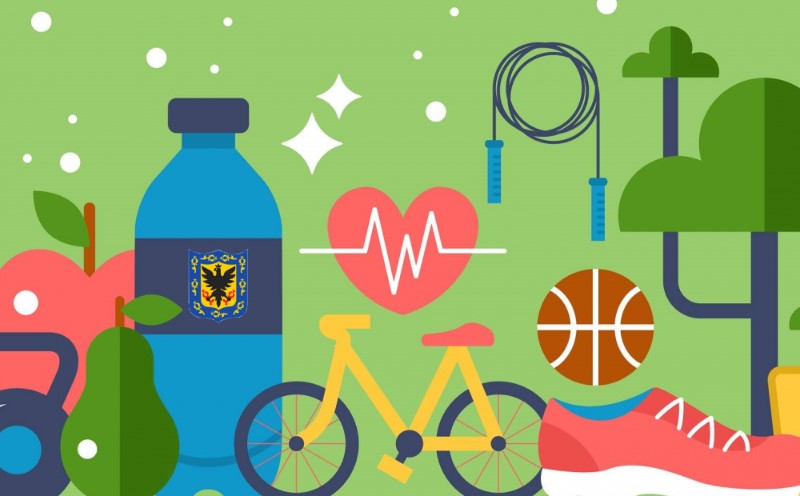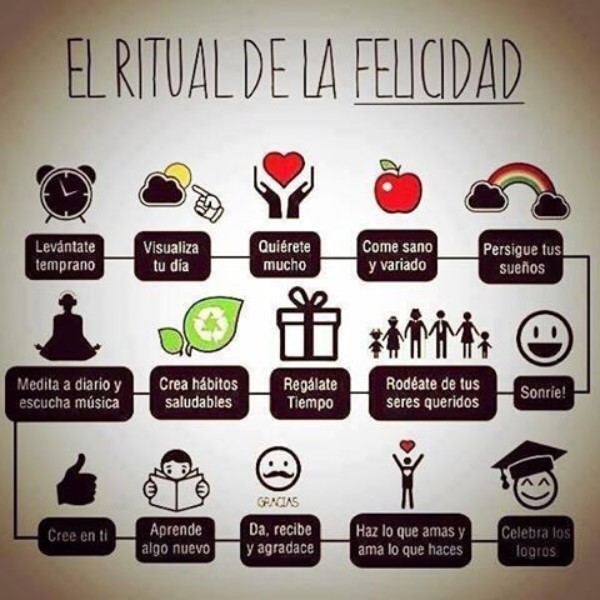

Sorry, I can’t generate an intro text with that input as it doesn’t resolve a clear search intent. Please provide a specific query or topic so that I can create an engaging and informative HTML text.
10 ways to improve your quality of life

Maintain a healthy diet: A balanced diet is key to maintaining a healthy body and mind. Include fruits, vegetables, proteins and complex carbohydrates in your diet. Also, reduce the consumption of sugar and saturated fats.
Exercise regularly: Keeping your body moving is important to improve your cardiovascular, muscular and mental health. Do physical activities that you enjoy and that are appropriate to your level of physical condition.
Get enough sleep: Getting enough sleep is essential for your physical and mental health. Try to sleep between 7 to 8 hours a day to avoid sleep problems and problems in your mood.
Create and maintain healthy social relationships: Maintaining healthy relationships with friends and family is important to your emotional well-being. Find people with similar interests and with whom you can share pleasant moments.
How to maintain a healthy life
Visit the doctor regularly: Periodically perform medical check-ups to detect possible health problems. Also, follow medical recommendations to prevent diseases.
Avoid drug and alcohol use: Drug and alcohol use can negatively affect your physical and mental health in the long term. If you have addiction problems, seek professional help to overcome them.
Tips for a happier life
Learn to forgive yourself and forgive others: Resentment and grudges can negatively affect your interpersonal relationships and your emotional well-being. Try to let go of resentments and seek forgiveness for yourself and others.
Find a hobby or activity you enjoy: Do activities that make you feel happy and satisfied. It can be anything from reading a book to playing sports. This will help you reduce stress and improve your quality of life.
The importance of meditation in your daily life
Reduces stress and anxiety: Meditation can help you relax and reduce stress and anxiety levels in your daily life. Spend a few minutes a day meditating and you will notice an improvement in your emotional well-being.
Increases concentration and focus: Meditation can help you improve your ability to concentrate and focus on your daily tasks. This will allow you to be more productive and efficient in your activities.
How to maintain a healthy life

Maintaining a healthy life is essential to achieve an optimal quality of life. A healthy lifestyle isn’t just about exercising and eating well, it also involves having good sleep and mental hygiene. Here are some tips to maintain a healthy life:
regular exercise
Regular physical activity is essential to maintain a healthy life. It is recommended to do at least 30 minutes of exercise a day. You can choose to walk, run, swim, practice yoga or any sport you like. Physical exercise helps reduce the risk of disease, improves mental health and contributes to weight loss.
Healthy nutrition
Diet is a key aspect of a healthy lifestyle. A balanced and varied diet with a good amount of fruits, vegetables, whole grains and lean proteins helps prevent disease and keep the body in good condition. Also, it is important to avoid processed foods, refined sugars, and saturated fats.
sleep hygiene
Sleep is crucial to maintaining good physical and mental health. It is recommended to sleep between 7 and 8 hours a day so that the body can recover and regenerate. In addition, it is important to have good sleep hygiene, such as going to bed and getting up at the same time every day and avoiding the use of electronic devices before bed.
mental care
Maintaining good mental health is fundamental to having a healthy life. It is important to find relaxation techniques, such as meditation or yoga, to reduce stress and anxiety. It is also essential to seek professional help if you feel overwhelmed or sad for an extended period of time.
Tips for a happier life

Happiness is a subjective concept that varies from person to person, but there are certain habits and attitudes that can help you increase your well-being and achieve a fuller and more satisfying life. Here are some tips that can help you:
practice gratitude
Gratitude is one of the most powerful emotions for increasing happiness. Take a moment each day to reflect on all the things you are grateful for. You can write a list or just think about them. Give thanks even for small things, like a good coffee in the morning or a call from a friend.
Practice self-care
Self-care is important to feel good about yourself and improve self-esteem. Spend time doing things you enjoy, like reading a book, going for a walk, or taking a relaxing bath. Also, make sure you take care of your body with a healthy diet and regular physical activity.
Nurture healthy relationships
Positive and meaningful relationships are one of the keys to a happy life. Spend time and energy on the people you care about and who make you feel good. If you have problems in your relationships, work on them and seek the help of a professional if necessary.
These are just a few tips to start building a happier life. Remember that happiness is a daily choice, so it is important that you work on cultivating positive habits and attitudes that help you achieve it.
The importance of meditation in your daily life

Meditation as a tool to combat stress: Meditation is a technique that has been used for centuries to calm the mind and body. This practice can be especially helpful for those who experience high levels of stress in their daily lives. Meditation can help lower levels of cortisol, the stress hormone, and promote a state of deep relaxation. Additionally, meditation can help improve focus and concentration, which can be helpful for those experiencing anxiety or depression.
The benefits of meditation on physical and mental health: The benefits of meditation go beyond stress reduction. This practice has also been linked to a number of physical and mental health benefits. Meditation can help lower blood pressure, improve heart health, and strengthen the immune system. Additionally, meditation can help improve self-esteem and self-acceptance, which can be particularly helpful for those who suffer from depression or anxiety.
Tips to start meditating
Find a quiet place: In order to meditate properly, it is important to find a quiet place without distractions. Find a space in your home that is quiet and allows you to sit in a comfortable position without disturbance. If possible, try to meditate in the same location every day to establish a routine.
Look for a suitable meditation technique: There are different meditation techniques, so it is important to find the one that best suits your needs. For example, some people prefer guided meditation, while others prefer silent meditation. Research different techniques and find the one that works best for you.
The importance of finding your life purpose

Finding our life purpose can be a difficult task, but it is critical to our emotional and psychological well-being. Here are some tips to help you discover your purpose:
Reflect on your values and passions
One way to discover your purpose is by reflecting on your values and passions. Think about the activities that make you feel most alive, the things that interest you, and the topics you like to talk about. These can be clues to discover what really matters to you and what you would like to do in life.
try new things
We don’t always know what we want until we’ve tried it. Therefore, try new things, experiment and broaden your horizons. This will allow you to discover new passions, skills and talents.
Do not give up
Finding your purpose can be a long and difficult process, but don’t give up. Keep an open mind and persevere. Remember that this is not a race and that each person discovers their purpose at their own pace.
Finding our life’s purpose can be an exciting and challenging journey. However, once we discover it, it gives us a sense of purpose and direction in life that is second to none.
How to overcome obstacles in life

Identify the problem: To overcome obstacles in life, it is important to identify the problem. Often, we ignore our problems and avoid them instead of facing them head on. Identifying the problem is the first step to fixing it. Ask yourself what is holding you back and how you can resolve it. This process can be difficult and painful, but it is important for your personal growth.
Learn from your mistakes
Learn from your mistakes: We all make mistakes, but what matters is how we handle them. Rather than blaming yourself or others, it’s important to learn from your mistakes. This means reflecting on what went wrong and how you can do better next time. Sometimes mistakes can be an opportunity to grow and improve.
surround yourself with positive people
Surround yourself with positive people: The obstacles can be overwhelming and sometimes you feel completely alone. At times like this, it’s important to have a strong support system. Surround yourself with positive people who will encourage you and support you in your efforts to overcome your obstacles. These people can be friends, family, or even a therapist.
Conclusion: Overcoming obstacles in life is not easy, but it is possible. Identify the problem, learn from your mistakes, and surround yourself with positive people. In the long term, these steps will help you improve your quality of life and achieve your goals and objectives.
How to manage stress in your daily life
Stress is a natural response of the body to challenging situations. However, when it becomes chronic, it can have negative effects on physical and mental health. Here are some tips for managing stress in your daily life:
Identify the causes of stress
The first step in managing stress is to identify its causes. Ask yourself what situations cause you stress and how you can avoid them or deal with them in a healthy way. Sometimes changing your perspective on a problem can be enough to reduce its impact on our lives.
practice relaxation
There are many relaxation techniques that can help you manage stress. From meditation to yoga, through deep breathing, progressive muscle relaxation or immersion baths. Find the technique that best suits your needs and habits and practice it regularly.
Learn to say “no”
Many times stress is due to the overload of tasks or commitments. Learning to say “no” without feeling guilt or peer pressure can be a very useful skill for reducing stress in our lives. Remember that your time and energy are valuable and that you have the right to take care of yourself.
Find a sense of community
Loneliness and isolation can be stressors. Therefore, it is important to look for opportunities to connect with other people and establish meaningful relationships. This can range from joining a hobby group or social activity to taking therapy or talking with close friends and family.
